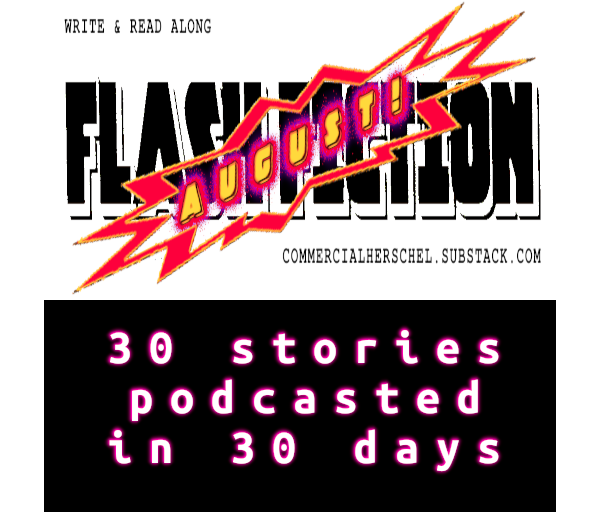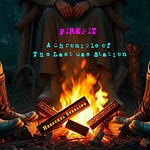I think of Flash Fiction as pressing the subconscious into duty. It has been rewarding for me. Tomorrow is Flash August Fiction where I will do 30 brand-new stories, podcasted, in 30 days. In February, I did Flash Fiction February[FFF], which was 29.
Not a lot of notes here. Just going straight to podcast.
What I learned from FFF and how a formula emerged.
Don’t be cheap. Don’t be lazy. Write a real ending. Don’t end your story with some cheap, traumatic other-worldly ending where a monster or an alien kills everyone, or there’s a car accident and everyone dies. Actually reveal something, go ahead and be clever and articulate. Write as much as you need to make that happen.
Not Like a Typical Story
It is more prompt-driven, and less premise-driven. Most stories are beginning, middle, ending. FF is different. It’s more like two parts. Either a beginning and then combine the middle and the ending, or, I combine the beginning and the middle, and then have an ending. I’m not sure if there’s a purposeful decision. If my mind is more chaotic, it’s usually the latter.
It’s Usually a Two-part Formula
Mystery-Reveal
Problem-Solution
Conflict-Resolution
Obstacle-Removal /Overcoming
Enemy-Victory
Humor: Build-up/ Punchline.
What are the prompts for stories?
Anything
Objects
Dreams
First thought I wake up with.
Conversations from anywhere, such as
Memories
Relationship Dynamics
Continuations of series’ or sequels from past stories.
That’s pretty much what I know about writing flash fiction as opposed to more planned out, premise-driven fiction. There is a lot more detail and nuance in the actual podcast episode that goes with this post.
I went on in there about how writing works to help you reveal things in your mind you might not be cognizant of right away. Below is the episode I mentioned.


















Share this post